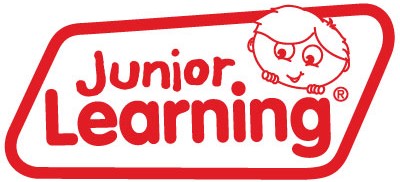How to Develop 5 Most Important Social Skills in Kids

Little kids face a lot of challenges from the day they are born. With everything new to them, it is the parent’s (guardian) responsibility to ensure his/her kid learns all the right things. This includes social skills and how to interact with the world around them.
Social skills play a crucial role in a child's happiness and success, more than their academic achievements. That said, parents ought to help their kids develop the desired social skills.
Some of the skills young children need to develop for a happier future include the ability to interact with strangers, talking properly and effectively, know how to start a conversation, listen, get along with other people, make friends, keep friends, be responsible, dealing with unfavourable conditions, bullying, and awkwardness properly.
A child also needs to learn how to accept and find acceptance, interact, bond, give compliments, as well as empathize.
Some children are naturally sociable while others need to be encouraged/trained to socialize. The art of socializing isn’t however mastered in a single day. Teaching your kids to communicate well is the first step to helping them be friendly human beings.
Outlined below are some of the ways you can train your kids to be sociable.
1. Encourage Them to Make Eye Contact When Conversing

Teach your children to learn to maintain eye contact whenever talking to their peers and older people. It is by keeping eye contact that one will be able to communicate effectively and build confidence.
Toddlers will need to practice this everyday until it becomes a habit. One way to train children to make eye contact is by playing games that encourage the same, such as the staring contest. Encourage them to look at their toys in the eyes while playing.
2. Let Them Learn Various Emotions
Train your children to imitate the various emotions such as disappointment, anger, joy, mischief, excitement, weirdness, tiredness, nervousness, danger, and terror, among others. They should also be able to discern emotions and know how they should respond to the same. According to life coach Eiran Trethowan, the skills learned in childhood can play a major role on the way we see and engage with the world around us as adults. She says, “play the game of ‘identify the emotion’ with your little one. Hold placards of different smiley, and make faces to help them differentiate between each. Learn to use these emotions on them whenever happy, mad, or disappointed. They will understand these much better.”
3. Encourage Them to Communicate
Silence isn’t always the best way to pass a message. Train your kids to use/understand both non-verbal and verbal cues when interacting with other people.
Help them learn how to communicate, express, and respond to various social stimuli. The kids should also learn the appropriate greetings and responses to the same. Parents and grandparents should also train kids to use generous words such as ‘thank you,’ 'please', and other kind words.
Encourage them to speak out their ideas, beliefs, desires, needs, and even ask questions where they don’t understand or need help.
4. Create a Sociable Environment for Them

Do not let your child lead a lonely life. Let him/her learn to make friends, stay in the company of good people, and understand the benefits of having friends.
According to the child and adolescent experts from Thinking Families, it is important to create an environment that encourages social behavior. They explain “by letting them play with their peers, attend hobby classes, go to playschools, sports activities, and playgrounds, you create the ideal conditions for social growth. It is by creating such an environment that kids will learn to make friends. This is a natural and vital aspect of growing up and learning how to engage with the world around them.”
Allowing him/her to mingle with other children, and elders improve their interpersonal skills. Your kid will always make friends wherever he/she goes for as long as you made it possible for them in their childhood.
Is your child getting ready to head back to school? Find out how to prepare here.
5. Prepare Them for Bigger Social Challenges

As long as a child can express him/herself confidently and fearlessly, he/she will be able to tackle even the most complex social situations later on in life.
Don’t just train them to communicate, let them learn other arts of socializing such as conflict resolution, negotiation, non-verbal communication, bargaining, assertiveness, and public speaking.
According to the digital experts from Search It Local, technology can be used to help kids develop their social skills too. They explain “while technology should not be seen as a replacement for teachers and human interaction, using technology can provide information faster and create new instructional techniques. With more and more kids using technology at earlier ages, finding the balance between helpful and harmful is key.”
Do you know other ways children can adopt to become sociable in society? Feel free to share with us.
90% of a child’s brain development happens in his/her early years.
Encouraging them to tap on their ability to socialize with other people, therefore, plays a crucial part in their future life. That said, don’t leave your kids to gadgets and the internet, let them get outside there and learn to make friends and socialize.

